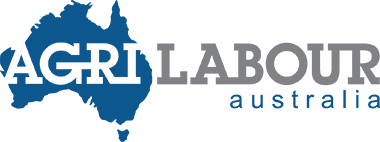Compliance and bio-security
As an industry that regularly employs international workers, the correct management of visas and rates of pay is critical. Our recruiters ensure that candidates have the right to work in Australia and that our clients have the correct industrial agreements in place.
We use industry leading cloud-based software to manage all visa and industrial relations compliance requirements to give clients 100 per cent confidence.
Agri Labour Australia makes every effort to brief staff and mitigate the industry’s biggest risk, bio-security, which is particularly relevant in piggery and poultry.
Why clients prefer to work with Agri Labour Australia
The fact our recruiters work with all livestock sectors gives Agri Labour Australia an unmatched ability to access quality people and retain them in the livestock industry.
Having served our livestock clients since 2010, our recruitment team inherently understands the requirements of livestock roles.
Agri Labour Australia’s huge digital reach and international footprint allow us to connect with more highly engaged candidates than our competitors.
Access to niche staffing programs such as our Agri Veterans Program means our clients have the option to hire quality staff with transferrable skills as they transition from the Defence force.
What our livestock recruiters are looking for
When placing candidates in livestock roles, our recruiters seek candidates with a proven track record of working outdoors in jobs with an element of physical labour. Previous livestock experience is highly regarded, as is an appreciation for herd health and animal welfare.
Any candidate we put forward must demonstrate a solutions-based approach to addressing challenges and the ability to adapt to a changeable environment. Dealing with live animals is naturally unpredictable and involves expecting the unexpected.
Our clients also appreciate candidates with attention to detail and a positive attitude as they go about their daily tasks. Performing well under pressure is essential, as is working well as part of a team.
Clients top 5 concerns of clients when hiring livestock staff
- Poor animal welfare standards
- Reluctance to work in a team environment
- Inability to adjust to a changeable environment
- Unwillingness to use scientific data to support management decisions
- Lack of desire to develop one’s skills and abilities.
Working conditions at a glance
Most livestock work is done outdoors (in the heat and the cold) so staff must enjoy working outside and not mind getting their hands dirty at times. Working hours can be long and the physical nature of the job requires a reasonably robust constitution and level of fitness.
Depending on the specific livestock sub-sector, the use of automation and robotics is increasing. Operational decisions made on the job are supported by computers and scientific data.
Livestock roles we recruit for
The 15 most common livestock roles we have on our books at Agri Labour Australia include:
- Mixed farming manager
- Piggery attendant
- Poultry attendant
- Dairy attendant
- Livestock hand
- Pen rider
- Station hand
- Farm manager
- Veterinarian
- Feedlot manager
- Food supply chain analyst
- Maintenance technician
- Production manager
- QA officer
- Leading hand
- Feed mill manager




